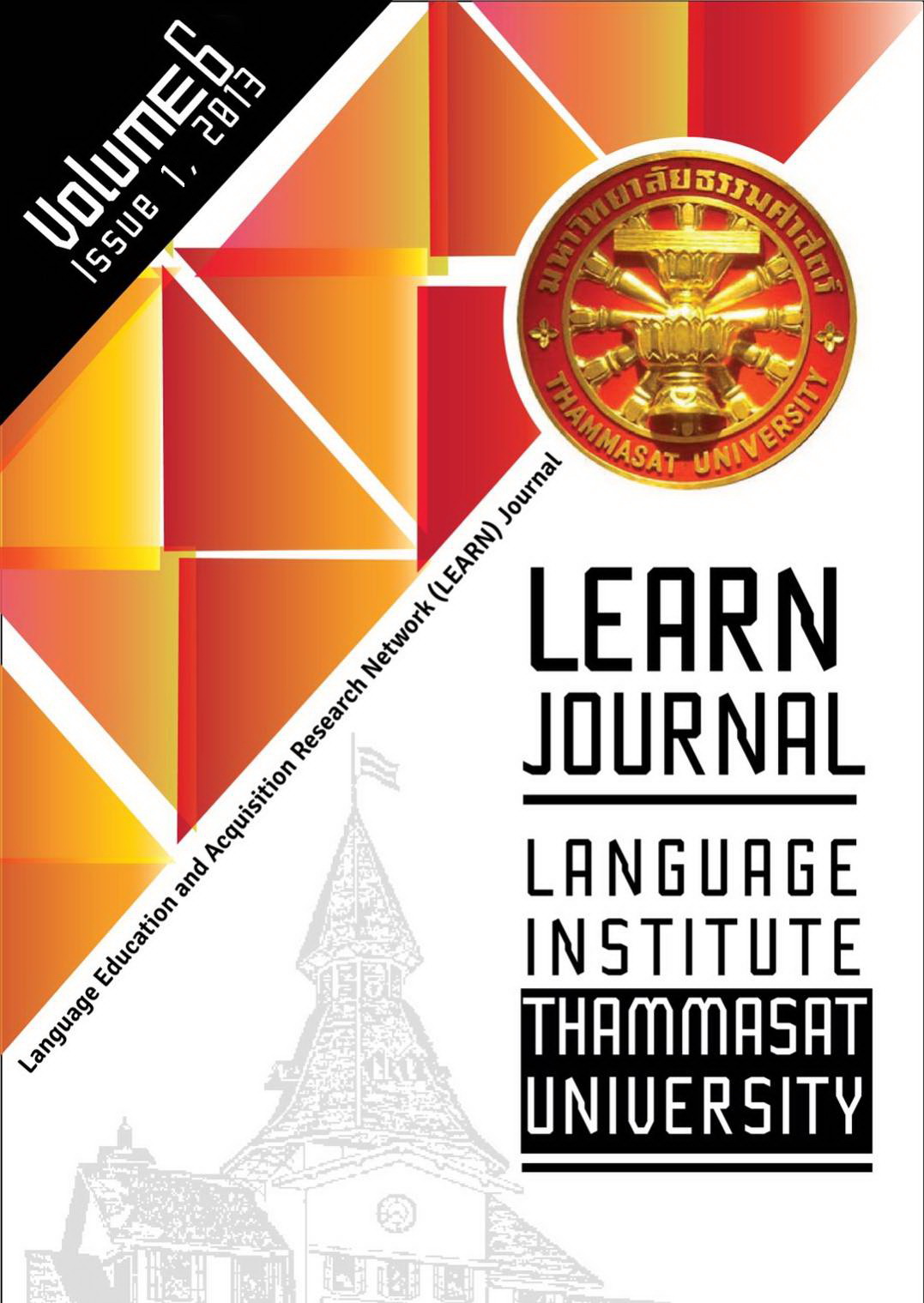Motivation and English Language Achievement of Thai Undergraduate Students
Main Article Content
Abstract
This study addresses the motivation of Thai undergraduate students in the English language classroom. It aims to evaluate the use of integrative motivation, instrumental motivation, and English language requirement to predict their English language requirements. The participants consisted of 420 first-year-Thai engineering students from government-run university. The data were collected through a three-part- motivation questionnaire using a Likert-type scale. English course grades were used as a measure of English language achievement. The key findings showed that (1) students took English courses for both integrative and instrumental reasons as well as to fulfill the university English language requirement, (2) the majority of students reported that instrumental reasons for studying English were more important than integrative reasons; that is to say, there was a significant difference between integrative motivation and instrumental motivation, (3) integrative motivation significantly contributed to the students’ strength of motivation, (4) students’ reasons of taking English to fulfill the university foreign language requirement was the significant predictor of their English course grades, and (5) integrative motivation and instrumental motivation were the significant predictors of the students’ desires to continue studying English beyond their fulfillment of the university English language requirement.
Article Details
How to Cite
Oranpattanachai, P. (2013). Motivation and English Language Achievement of Thai Undergraduate Students. LEARN Journal: Language Education and Acquisition Research Network, 6(1), 26–48. retrieved from https://so04.tci-thaijo.org/index.php/LEARN/article/view/102720
Section
Research Articles


